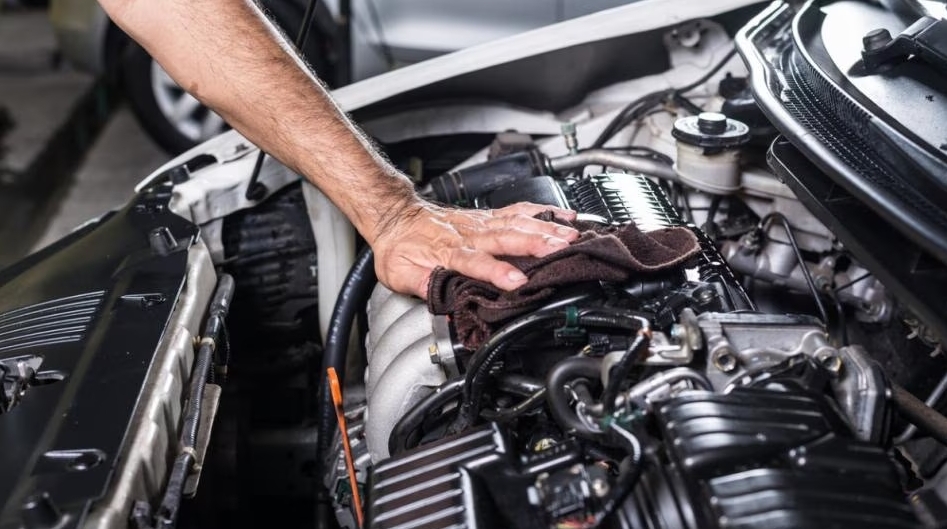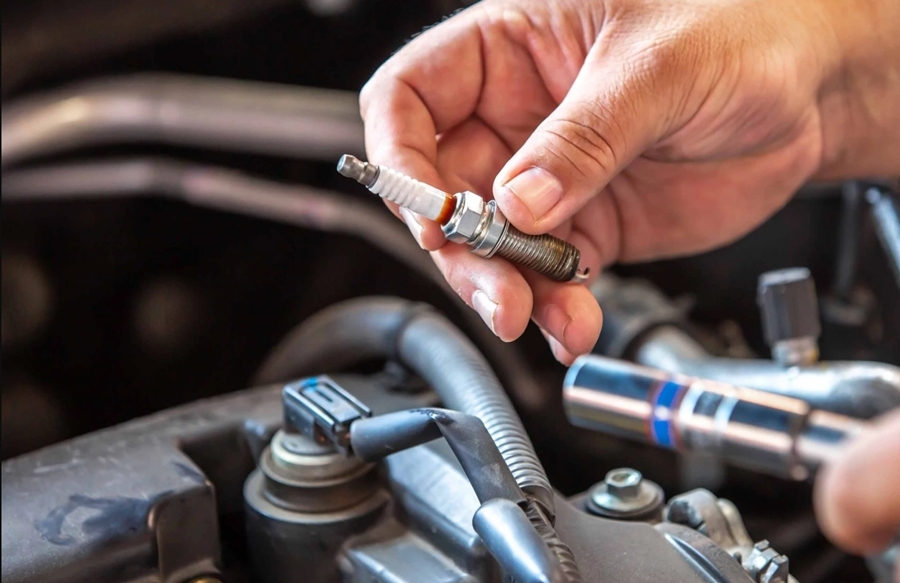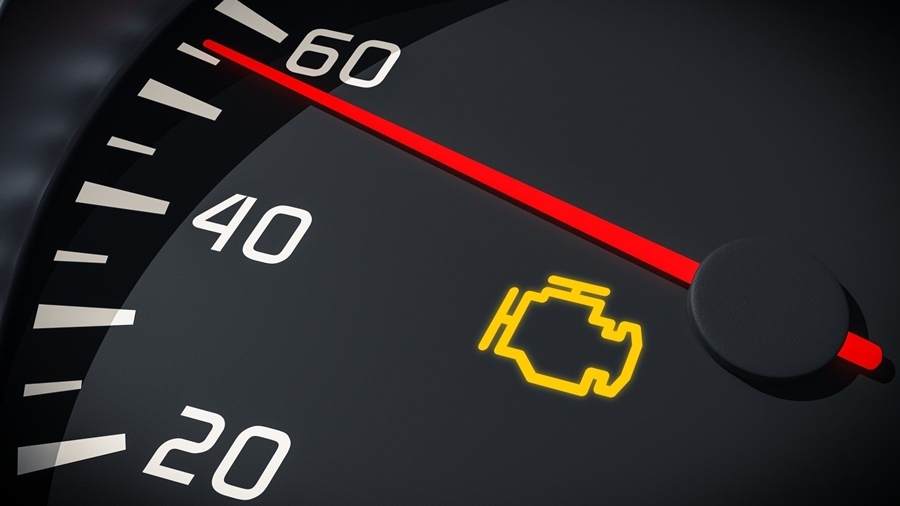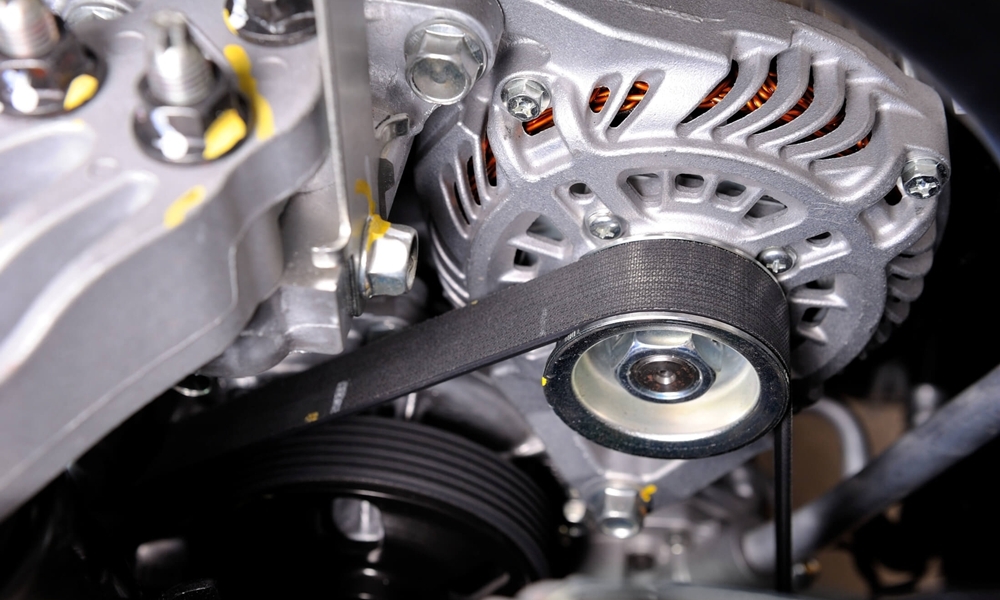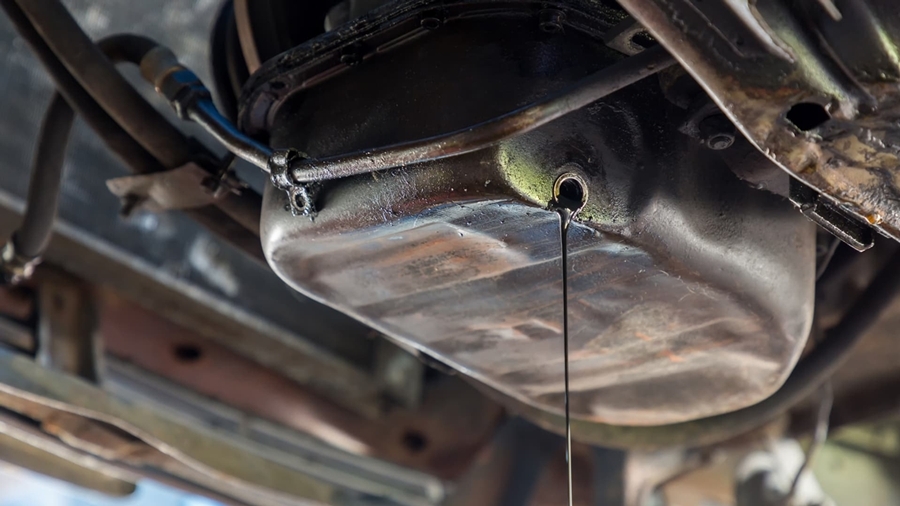The Day My Engine Died (And What It’ll Cost You)
Let me tell you a story that still haunts my wallet.
It was a Tuesday morning in March 2022. I was cruising down I-95, sipping coffee like any other day, when suddenly my Honda Civic made this awful knocking sound—like someone was drumming inside the engine bay with a sledgehammer. Within minutes, my car, the same one that carried me through college and a dozen road trips, gave up. Just stopped.
I coasted to the shoulder, heart pounding. Spoiler alert: the engine was totally seized. Dead as a doornail. When the mechanic took a look, he gave me that slow, sympathetic head shake. You know the one. “You’re looking at about $4,500,” he said.
I almost dropped my coffee. Engine replacement cost? That was not in my budget.
Also read: How Long Can Spark Plugs Last: When to Replace Based on Material Type (Copper vs Platinum vs Iridium)
So, What Does an Engine Replacement Really Cost?
Here’s the kicker: engine replacement cost isn’t a flat number. It’s a rollercoaster. One shop might quote you $3,000, while another throws out $8,000 like it’s no big deal. You start wondering if they’re even talking about the same car.
According to AAA, the average person spends around $1,200 a year on car maintenance. But a blown engine? That’s next-level. Replacing an engine can run you anywhere from $3,000 to $15,000—sometimes more. It all depends on your car, the engine you choose, and where you live.
I’ve stood in that greasy repair shop with my calculator, debating whether to fix my car or just light my bank account on fire. Honestly, sometimes they feel like the same thing.
Let’s break down what really impacts your engine replacement cost so you’re not blindsided like I was.
What Really Affects Engine Replacement Cost?
When my engine died, I thought I could just Google a number and know what to expect. Turns out, engine replacement cost is anything but straightforward. It’s like trying to guess the price of dinner without knowing what restaurant you’re walking into. There are a ton of factors that affect how much you’ll end up paying—and most people don’t realize just how much each one matters.
1. Your Car’s Make and Model
Let’s start with the obvious: not all cars are created equal. My Honda Civic was on the “more affordable” end of the spectrum, which made the $4,500 bill sting a little less (but still sting). But if you’re driving a truck, SUV, or a luxury brand? That number can shoot up fast.
Ford F-150s, for example, often come with engine replacement costs in the $9,000 to $13,000 range. And luxury vehicles? That’s a whole different ballgame. BMWs, Audis, and Mercedes models can easily hit $15,000 or more, especially if you’re going through the dealer.
A friend of mine owns a 2019 Audi A6. He got a quote of $17,200 for an engine replacement—and the car was barely worth more than that. So yeah, the kind of vehicle you drive makes a huge difference.
2. Type of Engine You Choose
Here’s where things get tricky. You actually have some control over your engine replacement cost based on what kind of engine you choose to install. It’s like picking between buying brand-new sneakers, refurbished ones, or a mystery pair from a thrift store.
- Brand-new engines are the most expensive. You’re getting factory-fresh parts, usually with a strong warranty, but you’ll pay top dollar.
- Rebuilt or remanufactured engines are more budget-friendly and still pretty reliable. These engines have been taken apart, cleaned, and had worn-out parts replaced.
- Used engines are the cheapest—but they come with the most risk. You’re basically rolling the dice and hoping the engine you got from that salvage yard doesn’t give out six months later.
Going cheap might save you now, but it could double your engine replacement cost if the thing dies again. Ask me how I know. (Thanks, cousin.)
3. Labor Costs Are No Joke
You might assume the engine itself is the biggest part of the bill, but labor can be just as brutal. Replacing an engine isn’t like changing a tire—it’s a complex job that can take 10 to 20 hours, sometimes more. And if your shop charges $100 to $200 an hour? Well, now you’re seeing how the engine replacement cost adds up so fast.
Some engines are easier to get to and remove. Others are buried under layers of parts and sensors that make the job way harder. If your car’s engine bay is a tight fit, mechanics will have to spend extra hours just taking stuff apart to even reach the engine.
4. Where You Live
It’s wild how much location impacts your bill. Like I mentioned earlier, I’m in Florida, and my engine replacement cost was right around the national average. But my sister in California got a quote that made her question all her life choices.
Shops in major cities tend to charge more for everything—parts, labor, even diagnostic fees. Meanwhile, rural or small-town mechanics often have lower overhead and pass those savings on to you. Same car, same engine, totally different bottom line.
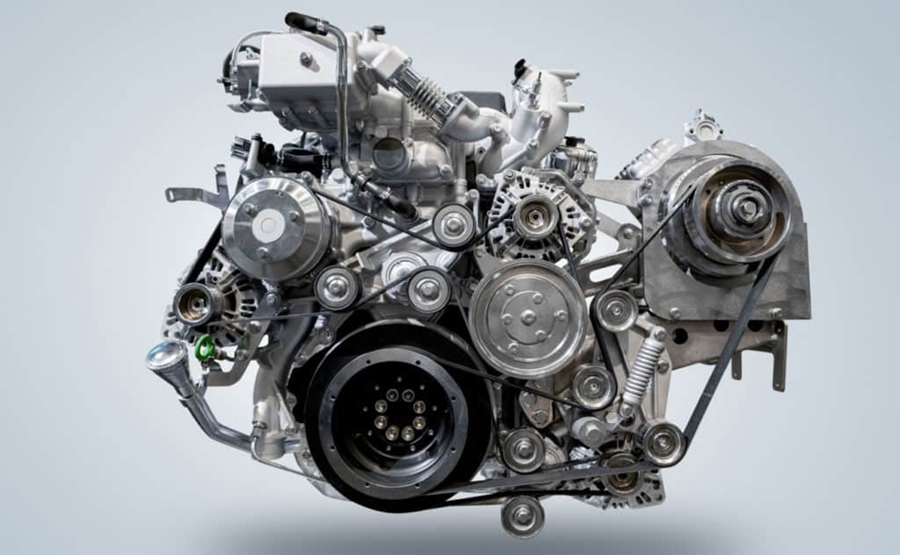
The Real Talk About New vs Rebuilt vs Used Engines
Alright, let’s break this down without all the mechanic-speak or sugarcoating.
New engines are like buying a brand-new iPhone. They’re shiny, clean, and come with that full factory warranty that makes you sleep better at night. For my Honda Civic, a brand-new engine would’ve run about $6,200 installed. The shop told me it could easily last another 200,000 miles, which sounded amazing—until I realized that was more than half of what my car was worth.
Then you’ve got rebuilt engines, which are kind of like certified refurbished tech. Worn-out parts get replaced, the whole thing gets tested, and you usually get a 2-3 year warranty. This is the route I chose. It saved me around $1,800 compared to a new engine, and now, three years later, my Civic’s still humming like a champ. Best decision I made, hands down.
Now for used engines—the real wild card. These are taken straight from another car, sometimes without much testing, and sold for way less. Sure, the price is tempting—sometimes half the cost of a rebuild—but you’re rolling the dice. It might last five years, or it might croak in five weeks. That’s the risk.
Here’s a tip most people don’t mention: always ask about the engine replacement cost warranty. Some shops offer excellent coverage, even on used engines. Others will bury you in fine print that makes the warranty pretty much worthless. Read the paperwork. Twice.
Who’s Actually Doing the Work Matters (A Lot)
This is where I messed up at first. I took my car straight to the Honda dealership because I figured, hey, who better to fix a Honda than Honda?
Bad move. Dealerships charge between $150–$200 per hour in labor. They quoted me 20 hours for the job. Do the math—that’s up to $4,000 just in labor, before even talking about parts. They also insisted on using a brand-new engine. Total engine replacement cost at the dealer? A staggering $7,800.
Independent mechanics, though? Way more reasonable. The guy I ended up using charged $95 an hour and got it done in 16 hours. That’s over $1,000 in savings just on labor. And guess what? He was a pro. Had been doing engine swaps longer than some dealership techs have been alive.
Thinking about doing it yourself? Unless you have a full shop setup, an engine hoist, and years of experience, don’t. This isn’t like changing spark plugs. One mistake and you could turn that discounted engine into an expensive paperweight.
The Hidden Costs That Sneak Up on You
Here’s what they don’t tell you upfront. That shiny quote you get? It rarely covers everything.
First, there’s the $200 diagnostic fee—just to confirm your engine is, in fact, dead. Then come the “while we’re in there” surprises. My shop found bad engine mounts ($380), a leaking radiator, worn gaskets ($180), and told me the fluids and filters all needed replacing ($120). Toss in some failing sensors ($220), and suddenly my $4,500 quote jumped to $5,200.
Engine replacement cost isn’t just about the engine—it’s the domino effect of related parts and labor. My advice? Ask for a complete estimate that includes common add-ons. Most mechanics know what else will need fixing once the engine comes out—they just don’t always tell you until later.
When to Repair vs. Replace the Engine
This was the hardest decision I had to make—and I lost sleep over it.
Some repairs, like head gaskets ($1,500–$3,000) or valve issues ($1,200–$2,800), might seem cheaper. But if your car’s older or the repairs are stacking up, you might just be delaying the inevitable. My neighbor dropped nearly $3,000 on a gasket fix, only for the engine to throw a rod six months later. Now he’s looking at a full engine replacement cost anyway.
My rule? If your car’s under 8 years old and in decent shape otherwise, repairs might be worth it. If it’s older or already giving you problems, replacing the engine could actually be the smarter long-term move—even with the high engine replacement cost.
How to Actually Pay for an Engine Replacement
Let’s be real—most of us don’t have a spare five grand lying around.
- I used a 0% APR credit card and paid it off over 18 months. Worked like a charm, but you need good credit.
- Auto loans are an option if your car is still worth something. Rates are usually better than credit cards.
- Some shops offer in-house financing. Mine partnered with a finance company that gave me 12 months same-as-cash. Just be careful with these—interest can skyrocket if you miss a payment.
- Personal loans from credit unions or banks are another route. Decent terms, especially if you have a relationship with the bank.
Avoid payday lenders at all costs. No car repair is worth those ridiculous rates.
Real Ways to Save on Engine Replacement Cost
Let me wrap this up with a few hard-earned tips:
- Get multiple quotes. I saw a $4,000 swing between five different shops. Same job, huge difference.
- Don’t rush into the first available slot. I almost did. Turned out they were the most expensive.
- Ask about used or remanufactured engines. My guy found one with just 30,000 miles for $800 less than a standard rebuild.
- Time your repair wisely. Avoid busy seasons. Shops are more willing to negotiate when business is slow—like March or after the holidays.

When to Just Walk Away
Sometimes you’ve just got to face reality and call it what it is: a money pit.
Here’s the rule I followed when my own car was on the line—if your engine replacement cost is more than 70% of your vehicle’s value, it’s probably time to walk. I checked the value of my Civic and saw it was worth around $7,000 in decent shape. The shop quoted me $4,500 for the engine replacement. Not ideal, but still under the 70% threshold. Plus, everything else—transmission, suspension, tires—was in great shape. So I went for it.
But my buddy’s 2008 Chevy Malibu? Whole different story. It had 180,000 miles on it and a blown engine. His engine replacement cost was going to be $5,500. We checked—his car was barely worth $4,200 even when it was running. No-brainer. He sold it to a junkyard for $800 and put that money toward a newer ride.
What Can You Do With a Dead-Car Dilemma?
If you’re in that same boat, where repairing the car just doesn’t make financial sense, you’ve got a few options:
- Sell it as-is: You’ll typically get 15–25% of the car’s running value. Not much, but better than nothing.
- Trade it in: Dealerships will still take non-running vehicles, but they’ll lowball you hard. It might work out if you’re planning to finance a new car.
- Part it out: If you’ve got the time (and patience), you can make more money selling valuable parts—like the transmission, alternator, or catalytic converter—on your own. But it’s not for the faint of heart.
What Most People Don’t Know About Engine Replacement Warranties
Here’s a fun little surprise I ran into when pricing out my engine swap: not all warranties are created equal. In fact, some of them are pretty much useless unless you read the fine print.
One shop gave me a “12-month warranty” that sounded good… until I asked questions. Turns out, it only covered the internal engine block and pistons. That’s it. If the installation caused other problems—or if a sensor they touched went bad—tough luck. That’s not real protection. It’s just marketing.
The shop I finally went with offered a solid 36-month/36,000-mile warranty. It covered the full installation and related parts, not just the engine itself. About eight months after the job, a sensor they had replaced during the install failed. They fixed it for free, no questions asked. That kind of coverage turned out to be a lifesaver, especially considering how much the total engine replacement cost was.
Types of Warranties You’ll See
Here’s what I learned after digging through warranty info like a man possessed:
- Remanufactured engine warranties usually last 24–36 months. Some are super basic—just internal components—while others cover everything that gets touched during the install. Always ask what’s included before you sign.
- New engines from dealerships typically come with a full powertrain warranty, often 5 years or 60,000 miles. That’s amazing peace of mind, but you’re paying for it in the engine replacement cost, which is almost always the highest when you go the dealership route.
- Used engines? You’re mostly on your own. Some salvage yards offer 30- to 90-day warranties, but they usually only guarantee the engine isn’t dead when you get it. If anything fails after that—even if it’s clearly related—you’re stuck with the bill.
The Real Scoop on Engine Replacement Financing Options
Let’s be honest—most of us don’t have five grand lying around for a surprise engine replacement cost. When my Civic’s engine died, I had no choice but to figure out how to finance the fix without destroying my bank account.
Credit cards actually saved me. I snagged one with a 0% APR offer for 21 months and charged the entire engine replacement cost. I paid it off over 18 months with no interest. But fair warning—you need solid credit to qualify for those deals. If your credit score’s hurting, you could be staring at 25%+ APR, which will make your engine repair feel like a mortgage payment.

My buddy had a different route. He got a personal loan from his credit union for 7.9% APR. That financed the engine replacement cost on his Ford F-150, and it was way cheaper than using a high-interest credit card.
Now, shop financing sounds convenient, but it’s often the priciest option. Many repair shops now partner with third-party lenders, so getting approved is fast—but those interest rates? I’ve seen 15 to 25% APR. If you go this route, make sure you can pay it off quickly. Otherwise, you’ll be adding thousands more to your final engine replacement cost.
What I learned the hard way? Start exploring your financing options before disaster strikes. The worst time to hunt for a loan is when your car’s dead and you’re desperate to get back on the road.
How to Spot a Sketchy Engine Replacement Shop
After talking to way too many people and reading horror stories online, I started to see the red flags of bad engine replacement shops.
If a shop won’t show you the engine they’re planning to install, run. Legit places will let you inspect the engine, tell you its mileage, and show documentation on where it came from. If they’re dodging your questions or being vague, something’s up.
And be skeptical of quotes that seem too good to be true. One shop offered me a deal that was $1,200 below the next lowest bid. I later found out they were calling a high-mileage junkyard engine “rebuilt.” Nope. That kind of corner-cutting can double your engine replacement cost when it fails again in six months.
The good shops? They’re consistent in how they treat customers:
- They walk you through the process without talking down to you.
- They give you detailed written estimates with exact pricing on parts and labor.
- Their workspaces are clean and organized—because if they can’t keep their shop straight, how can you trust them to install a precision engine?
Regional Price Differences That’ll Shock You
Here’s something I never expected: your zip code can swing your engine replacement cost by thousands of dollars.
Take the West Coast, for example. My sister in Seattle got quoted $7,200 for the same Civic engine job I had done in Florida for $4,500. No difference in parts—just labor rates. Seattle shops charge $140–$180 per hour, while my Florida mechanic was at $95.
California’s even worse. A friend in LA paid $8,400 for a Camry engine swap. That same work costs closer to $5,500 in places like Georgia or Missouri.
The Midwest and Southeast? Way more budget-friendly. I’ve got family in Alabama and Ohio who consistently pay 20–30% less for major repairs. Lower overhead means your engine replacement cost doesn’t balloon before you even approve the work.
One surprise? Rural areas aren’t always cheaper. Fewer shops means less competition, which can push prices up. Mid-sized cities in lower cost-of-living states seem to offer the best balance of affordability and quality work.
And Texas? It’s all over the place. Big cities like Dallas or Austin have dealership-level prices, but drive an hour out and you’ll find prices drop fast.
The Truth About Different Engine Types and Their Replacement Costs
Not all engines are created equal when it comes to replacement. Some are dirt cheap. Others? Not so much.
Four-cylinder engines are usually the cheapest to swap. My Civic’s 1.8L engine was straightforward, and the install wasn’t overly complex. That kept the total engine replacement cost reasonable.
V6 engines are pricier. They’re more complicated, take longer to install, and parts cost more. My neighbor paid $2,800 more than I did to replace the V6 in his Toyota Highlander.
V8 truck engines are a whole different game. Bigger engines, heavier installs, and pricier labor. A friend dropped $9,200 to replace the 5.3L V8 in his Silverado. That’s double what I paid for my four-cylinder.
Turbocharged engines may seem small, but they’re incredibly complex. I heard about a guy who paid $11,000 to replace a 2019 Ford EcoBoost engine. A four-cylinder shouldn’t cost that much—but with turbos and advanced tech, it does.
Diesel engines? Just prepare your wallet. Between emissions systems and high-end parts, engine replacement costs often hit $15,000+. I know someone who got quoted $16,000 for a Duramax diesel and decided to trade the truck instead.
Hybrids are a headache. Replacing the gas engine alone is complicated, but once you throw in electric components and battery integration, shops charge a premium. Prius engine swaps often run between $8,000–$12,000.
Timing Your Engine Replacement Can Save You Serious Money
Here’s a pro tip no one talks about—when you schedule your repair matters more than you think.
Winter is prime time. From November to February, shops are slow, especially in colder states. My mechanic told me they’re way more open to negotiation during that stretch just to keep work coming in.
Avoid summer like the plague. More road trips mean more breakdowns, which means more demand. That spikes your engine replacement cost and increases wait times.
End-of-month deals are a real thing. Some shops have quotas or financial targets to hit. If you walk in on the 28th, you might score a better deal than if you came in mid-month.
Worst time? Right before holidays. Thanksgiving, Christmas, Labor Day—everyone’s rushing to fix their cars, and prices climb fast. If your engine dies in late December, brace yourself for pain.

FAQ: Engine Replacement Cost
-
How much does an engine replacement cost for a Honda Civic?
For most Honda Civics, you’ll spend between $3,500 and $5,200 for a full replacement. I personally paid $4,500 for a remanufactured engine in my 2014 Civic back in 2022. If you opt for a brand-new engine, expect that engine replacement cost to rise to around $6,000–$6,500 installed. Want to save money? A used engine could be $2,800–$3,800, but there’s a gamble involved.
-
Is it better to replace the engine or buy a new car?
Here’s the rule I went by: if your car is worth more than 1.5 times the engine replacement cost, it’s probably worth fixing. My Civic was worth $7,000, so spending $4,500 made sense. But if you’re staring at a $6,000 engine replacement cost on a car worth $5,000? You might be better off car shopping.
-
How long does an engine replacement take?
Plan on 15–25 hours of actual work. That translates to 2–5 shop days depending on how busy they are and whether parts are in stock. My job took three days start to finish. But I’ve heard of people waiting over two weeks when parts had to be ordered or the shop was slammed.
-
Can I do an engine replacement myself?
Technically, yes. Realistically? Not unless you’ve got serious mechanical chops. You’ll need an engine hoist, specialty tools, a garage, and a solid understanding of modern car systems. Even seasoned DIYers sometimes throw in the towel halfway through. One wrong move can double your final engine replacement cost.
-
What’s the difference between rebuilt and remanufactured engines?
Rebuilt engines are fixed up by smaller shops using a mix of old and new parts. Remanufactured engines come from big facilities that break down the engine completely and rebuild it to factory specs using mostly new parts. Remans usually cost a bit more but come with longer warranties and more peace of mind.
-
Will my car insurance pay for engine replacement?
Probably not. Standard insurance doesn’t cover mechanical breakdowns. If your engine failed due to a covered accident, they might help. Extended warranties sometimes cover engine failure, but check the fine print—many don’t cover full engine replacement cost.
-
How do I know if I need a new engine or just a repair?
Signs you need a replacement: loud knocking, no compression, metal in the oil, or catastrophic failure. Things like head gasket leaks or timing issues might just need repair. A compression test (around $150–$200) can help determine if your engine is toast or salvageable.
-
What’s the cheapest way to replace an engine?
Cheapest? Buy a good used engine and find an independent mechanic to install it. But keep in mind that low engine replacement cost doesn’t always equal best long-term value. Remanufactured engines from a trusted shop offer a good middle ground: reasonable pricing, solid reliability, and warranties that give peace of mind.
-
How much does labor cost for an engine replacement?
Labor is where things vary big-time. Expect $1,200–$4,000 depending on the shop and location. Dealerships charge $150–$200 per hour, while independent shops range from $80–$120. My Civic job took 16 hours at $95/hour, so labor alone was $1,520 of the total engine replacement cost.
-
Do I need to replace other parts during the engine swap?
Almost always. Mechanics often replace engine mounts ($200–$500), timing belts ($300–$800), water pumps ($200–$400), and gaskets or seals ($100–$300). It’s smart to budget an extra $500–$1,500 for these surprise add-ons to your total engine replacement cost.
-
How long will a replacement engine last?
A quality remanufactured engine should last 150,000–200,000 miles with regular maintenance. Brand-new engines can last even longer. Used engines? Total wild card. Mine has 60,000 trouble-free miles and counting, and it’s still going strong three years later.
-
Can you negotiate an engine replacement cost?
Definitely. I saved $300 by mentioning a competitor’s lower quote and asking if the shop could beat it. Many shops have wiggle room, especially during slower seasons or month-end. Just ask—worst they can say is no.
The Bottom Line After Four Years of Driving on My “New” Engine
Let’s face it: engine replacement cost is never fun. Whether it’s $4,000 or $14,000, it hits hard—financially and emotionally. But after four years of driving with my rebuilt engine, I can honestly say it was the right call.
My $4,500 investment bought me 60,000+ miles of reliable, no-drama driving. That’s peace of mind you can’t put a price on. Well, you can—but in this case, it was a lot cheaper than a new car payment.
So if your engine just gave up the ghost, don’t panic. Start with a proper diagnosis, compare shops, explore financing, and take your time. A smart, informed decision now can give you years of solid driving later.
And when it’s all over? You’ll have one heck of a story. Nothing brings people together like tales of expensive mechanical disasters.

